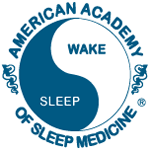 Today the CDC released new survey data about the sleep of people in the U.S. It examined the rate of “insufficient rest or sleep” in 2008.
Today the CDC released new survey data about the sleep of people in the U.S. It examined the rate of “insufficient rest or sleep” in 2008.The Behavioral Risk Factor Surveillance System is the world’s largest, ongoing telephone health survey. It collects data on risk behaviors and health conditions. One question on the 2008 survey was, “During the past 30 days, for about how many days have you felt you did not get enough rest or sleep?"
Nearly 404,000 people participated; they were 18 years of age or older.
Results show that about 31 percent were sound sleepers; they reported no days of insufficient rest or sleep in the preceding 30 days.
Who were these sound sleepers? They were more likely to be male, Hispanic, 65 years of age or older, and retired.
The results also suggest that island life promotes sound sleep. The age-adjusted percentage of people who always got enough sleep was highest in: Puerto Rico (51%), Guam (46%), U.S. Virgin Islands (36%) and Hawaii (36%). Louisiana was close behind at 35 percent.
At the other end of the spectrum were the problem sleepers. About 11 percent of respondents never got enough rest or sleep during the past 30 days.
Almost 26 percent of people who reported being unable to work were problem sleepers. Sixteen percent of people who were divorced, widowed or separated also felt that they never got enough sleep.
Southern states had higher percentages of problem sleepers. The age-adjusted percentage of people who never got enough sleep was highest in: West Virginia (19%), Tennessee (15%), Kentucky (14%) and Oklahoma (14%).
Everyone else had varying degrees of insufficient sleep. About 17 percent reported insufficient sleep ranging from 14 to 29 days; about 41 percent had anywhere from one to 13 days during which they did not get enough rest or sleep.
The authors conclude that doctors should ask patients about their sleep during routine office visits. Then they can make needed interventions or referrals to sleep specialists.
You can get help for a sleep problem at one of more than 1,800 AASM-accredited sleep centers near you.
Earlier this year the Sleep Education Blog reported on two other sleep surveys: the American Time Use Survey and the Sleep in America Poll.







No comments:
Post a Comment